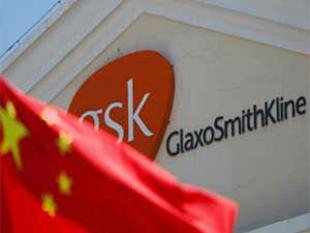Chinese police have identified four managers of drug manufacturer GlaxoSmithKline who they accuse of paying millions of dollars in bribes to doctors and others, a state news agency reported.
The police ministry announced last week GSK employees were under investigation for paying bribes that were passed through travel agencies. It said the bribes were aimed at increasing sales.
Four employees being questioned include a vice president and human resources director of Glaxo’s Chinese unit, the Xinhua News Agency said Monday.
The report said at least 50 million yuan ($8.2 million) passed through a travel agency as part of a scheme to hide the bribes. It said one suspect had authority to approve a budget of hundreds of millions of yuan (tens of millions of dollars) but did not say how much of that might have been used for bribery.
The scheme helped the employees circumvent GSK’s rules that limited gift-giving to 300 yuan ($50) per recipient, Xinhua said.
GlaxoSmithKline PLC said Monday that it was cooperating with the authorities.
“We are deeply concerned and disappointed by these serious allegations of fraudulent behavior and ethical misconduct by certain individuals at the company and third-party agencies,” it said in a statement. “Such behavior would be a clear breach of GSK’s systems, governance procedures, values and standards. GSK has zero tolerance for any behavior of this nature.”
It said GSK was reviewing all-third party agency relationships, and had “put an immediate stop on the use of travel agencies that have been identified so far in this investigation and we are conducting a thorough review of all historic transactions related to travel agency use.”
GSK said it respects China’s laws and expects its staff to abide by them.
The police ministry said last week that GSK employees were suspected of paying bribes to doctors, hospitals, medical associations and government officials.
Citing investigators, Xinhua identified the employees as Liang Hong, vice president and operation manager; Zhang Guowei, vice president and human resources; Zhao Hongyan, legal affairs director, and Huang Hong, business development manager.
Investigators also have questioned the corporate representative of the Shanghai Linjiang International Travel Agency, Xinhua said. It cited an unnamed investigator who said most of the agency’s business came from laundering money for the bribery scheme.
Xinhua said the corporate representative of the travel agency, Weng Jianyong, said he had an agreement with Liang to give his agency business and in exchange he would kick back some of the money.
GlaxoSmithKline said in June that it had investigated an accusation that its salespeople in China bribed doctors and found no evidence of wrongdoing. The company has said the police investigation might be based on information from the same anonymous source.
GSK is headquartered in Britain but has a presence in the United States, which could make it liable to penalties under U.S. anti-bribery laws.
Last week, state media reported the government was investigating production costs for 60 foreign and domestic drug companies in a possible first step toward changing state-set maximum prices. The announcement gave no indication any companies were suspected of wrongdoing.
This article originally appeared on abcnews







